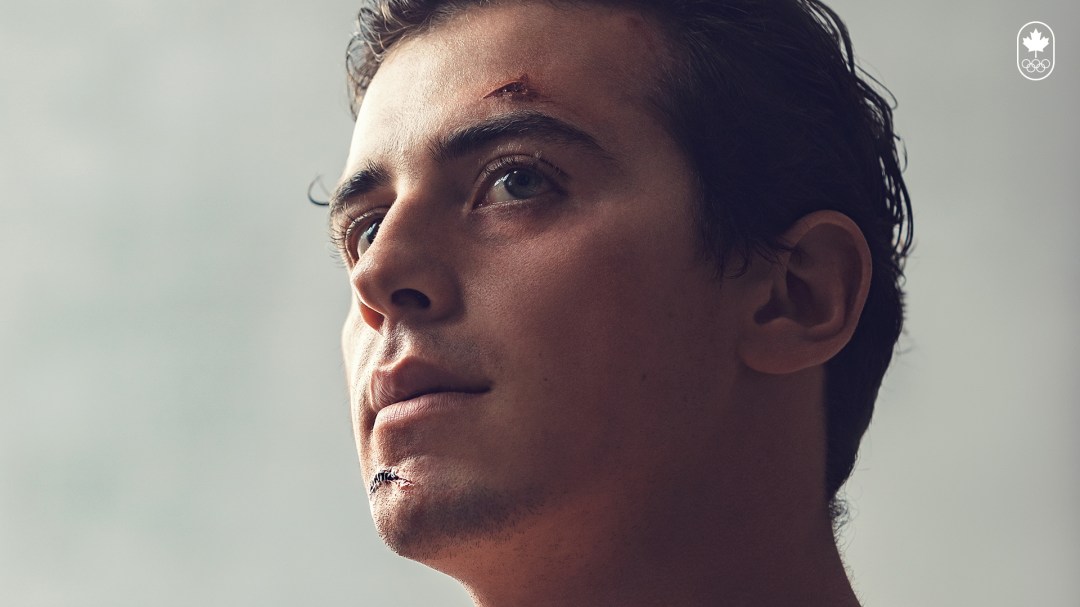Mark McMorris – Be Olympic
I was lying in the snow, struggling to breath through the blood in my mouth, waiting for the helicopter to arrive.
It was March 25, 2017, and I’d been skiing in the backcountry near Whistler with my brother Craig. It was a freak accident. The edge of my snowboard dug into the soft snow and I couldn’t stop myself from drifting too far to the left … and into a large tree. Boom.
I was out cold for about 45 seconds. When I regained consciousness, I didn’t think I’d ever snowboard again. I thought I was going to die.
When I woke up in hospital, I learned just how bad it was: fractured jaw, fractured left arm, ruptured spleen, pelvic fracture, rib fractures and a collapsed left lung. But I was grateful to be alive, to have the chance to try to snowboard again and possibly make it back to the Olympics in PyeongChang.
Be Olympic. To me, it’s about determination. It’s about getting up after you fall and working towards your dreams, even if it’s difficult, even if it hurts and there’s a risk you might fail. I think that’s something a lot of people can relate to, in different aspects of life.
I spent ten days in hospital. I needed surgery on my arm — I shattered my humerus — and on my jaw, to plate it. I couldn’t do much, physically, for a month and I was on a liquid diet for six weeks. Some days it felt like I’d return to snowboarding and other days, honestly, it didn’t.
The rehab sessions hurt so bad, and I hated them every time. But when I’d finish, I’d be so happy. It was like, “Okay, that’s one step closer to doing what I love and what brings me ultimate joy.”
For me, rehab is 50 percent physical and 50 percent mental. It’s a struggle. But I’ve found that as you physically progress, you mentally progress because you start to feel strong again. When you feel pain, it’s not a bad thing, you just need to keep going.
By now, of course, I’d had a lot of experience with rehab. There was the broken rib less than two weeks before the start of Olympics in Sochi. I went from barely being able to take a shower without debilitating pain to winning a bronze medal. And just a year before the collision in Whistler, I broke my leg at the Air & Style Big Air event in Los Angeles.
I was confident I could make it back this time, too.
By September 2017, I was back training. On Nov. 25, I competed in my first Big Air World Cup since the crash — and I won. I can’t explain how happy I was to get a win under my belt after that injury. I felt like I was on top of the world. It made me think I could hopefully take it into Korea and be able to stand on the podium. I would be thrilled to kill it there.


